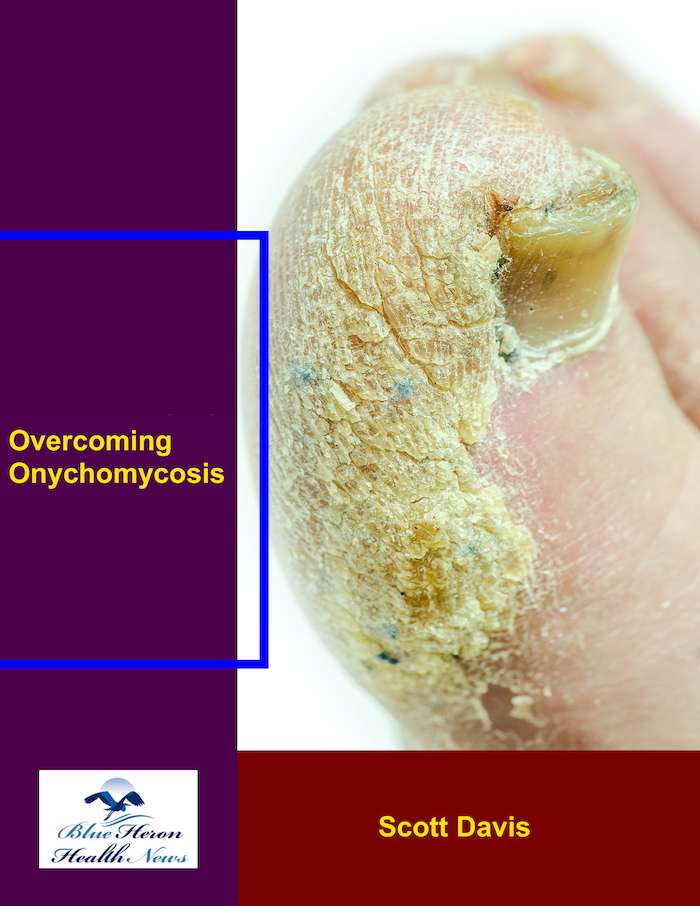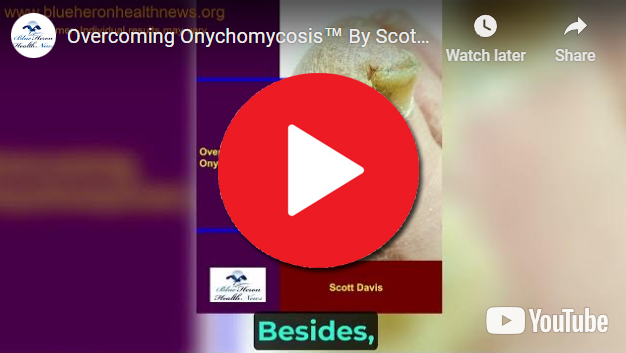
Overcoming Onychomycosis™ By Scott Davis It is a simple, natural, and all-in-one solution for onychomycosis. The program can help you to treat your nail fungus naturally. Once you follow this program, you do not need to spend on expensive treatments to prevent a recurrence. In brief, you can have a proven solution for your chronic nail fungus. Besides, the program is easy to follow, and most users find it effective against onychomycosis.
What are the symptoms of GERD?
Gastroesophageal reflux disease (GERD) is a chronic gastrointestinal disease in which the stomach acid or bile inflames the esophagus lining. Most often, it occurs from inappropriate relaxation or weakening of the lower esophageal sphincter (LES), a muscle ring at the meeting point of the esophagus and stomach, which permits the contents of the stomach to reflux back into the esophagus.
The signs of GERD can vary in intensity and between different individuals. Some of the most common symptoms include:
1. Heartburn:
A burning sensation in the chest or throat after eating, often lasting a few minutes to several hours.
This is the most common symptom of GERD and typically occurs while lying down or when bending forward.
2. Regurgitation:
A sour or bitter taste in the mouth due to the stomach acid refluxing back into the throat and esophagus.
You may feel like liquid or food is running back up into the mouth, particularly when bending over or lying down.
3. Chest Pain:
GERD-related chest pain feels like a heart attack but is most often a burning, pressure-type sensation.
This pain may be more severe after eating or on reclining and may be accompanied by other symptoms like belching.
4. Difficulty Swallowing (Dysphagia):
A sensation of food still being lodged in the chest or throat, or sensation of the throat tightening on swallowing.
This may be due to esophageal narrowing or inflammation resulting from chronic acid reflux.
5. Sore Throat or Hoarseness:
The acid can irritate the vocal cords and cause a sore throat, hoarseness, or scratchy throat.
It may worsen in the morning or when lying down.
6. Persistent Cough:
GERD may cause more or less persistent dry coughing, usually at night or after eating.
The coughing is generally non-productive, meaning little to no mucus is formed.
7. Wheezing or Asthma Symptoms:
Wheezing, shortness of breath, or deterioration of asthma-like symptoms are noted by some with GERD.
Acid reflux can inflame the airways and lungs and lead to respiratory symptoms, especially at night.
8. Nausea:
Ongoing acid reflux may lead to a feeling of nausea or vomiting.
It may also be associated with a general discomfort in the stomach.
9. Belching and Bloating:
GERD may lead to bloating or feeling full in the stomach or habitual belching.
People may also experience flatulence.
10. Bad Breath (Halitosis):
Acid reflux can lead to bacterial buildup in the mouth, leading to bad breath on a chronic basis.
It usually occurs due to regurgitation of stomach acid and food particles into the mouth.
11. Ear Pain:
In some cases, GERD may lead to ear referred pain, even though there is no ear infection. It could be because of irritation of the throat and esophagus.
12. Sleep Disturbances:
Patients with GERD are often disturbed during sleep, especially if the symptoms worsen in a recumbent position.
Nocturnal reflux may disrupt sleep due to pain, coughing, or chokings.
When to See a Doctor:
See a doctor if you have:
Severe, frequent heartburn (more than twice a week).
Difficulty swallowing, unintended weight loss, or vomiting.
Pain in your chest that may be indicative of a more dangerous condition like a heart attack.
Persistent cough, hoarseness, or asthma-like symptoms that are unresponsive to usual treatment.
Untreated GERD in the long term can lead to complications such as damage to the esophagus (esophagitis), esophageal narrowing (stricture), and a condition called Barrett’s esophagus, which puts one at risk for esophageal cancer.
Would you like additional information on the treatment of GERD symptoms or its potential complications?
Gastroesophageal reflux disease (GERD) and infrequent acid reflux both have the backflow of stomach acid into the esophagus in common, but differ in frequency, severity, and long-term effects. Below is a summary of the main differences:
1. Frequency of Symptoms
Infrequent Acid Reflux: This is when acid reflux happens every now and then, usually fewer than two times a week. It can happen after eating certain foods, drinking alcohol or coffee, lying down too quickly after a meal, or eating a large meal. For most people, infrequent acid reflux does not create a lot of long-term issues.
GERD (Gastroesophageal Reflux Disease): GERD is a chronic condition in which acid reflux occurs more frequently, typically over a frequency of greater than twice weekly. It is chronic and can be a long-standing, recurring illness.
2. Severity of Symptoms
Occasional Acid Reflux: Symptoms of occasional acid reflux (such as heartburn, sour mouth, or regurgitation of food) usually are mild and short-lived. They tend to be associated with a specific causative factor (for example, a rich, spicy meal or overuse of caffeine).
GERD: GERD symptoms are more frequent and prolonged. Frequent heartburn, chest pain, regurgitation, trouble swallowing (dysphagia), and even such symptoms as chronic cough, hoarseness, or sore throat are possible in those with GERD. The discomfort may be worse and more persistent.
3. Effect on Everyday Life
Occasional Acid Reflux: For most people who have occasional acid reflux, symptoms are endurable and do not significantly impair everyday routines. They can typically be relieved with diet changes, over-the-counter antacids, or avoiding trigger foods.
GERD: GERD can impact daily life much more. Chronic discomfort and the need for constant management can interfere with sleep, eating, and quality of life. GERD can require more frequent medical care and lifestyle changes to control symptoms.
4. Esophageal Damage
Occasional Acid Reflux: On a regular basis, occasional acid reflux typically does not leave permanent harm on the esophagus. The esophagus may become inflamed temporarily, but it will recover once the acid is washed away or symptoms resolve.
GERD: With GERD, the frequent contact with acid will result in more severe consequences long-term, including:
Esophagitis (esophageal inflammation)
Ulcers in the esophagus
Strictures (esophageal narrowing)
Barrett’s esophagus (a change in the lining of the esophagus, which increases the risk of cancer of the esophagus)
5. Treatment and Management
Occasional Acid Reflux: This can typically be treated with over-the-counter medications like antacids (e.g., Tums, Rolaids), H2 blockers (e.g., ranitidine), or proton pump inhibitors (PPIs) (e.g., omeprazole) for short-term relief. Modifying one’s lifestyle, such as skipping trigger foods, eating smaller meals, and avoiding lying down after meals, can also be helpful.
GERD: Treatment for GERD is usually more intense and may include:
Medications: Stronger PPIs, H2 blockers, or prokinetics to reduce acid production and improve normal esophageal function.
Lifestyle changes: Increased dietary changes (avoiding caffeine, alcohol, fatty foods), weight loss, and sleeping with the head of the bed raised.
Surgery: In severe cases, surgery such as fundoplication may be necessary to tighten the LES and block acid reflux.
6. Long-Term Risks
Occasional Acid Reflux: Occasional acid reflux typically doesn’t pose significant long-term health risks, although it can cause discomfort or irritation if left unchecked. If symptoms are managed and infrequent, it usually does not lead to lasting damage.
GERD: GERD, if left untreated, can lead to more serious complications, including the development of Barrett’s esophagus, esophageal cancer, and chronic lung disease from aspiration (when acid is aspirated into the lungs). GERD is a condition that becomes increasingly worse if not properly controlled.
Summary of Key Differences:
Aspect\\tOccasional Acid Reflux\\tGERD (Gastroesophageal Reflux Disease)
Frequency\\tLess than twice a week\\tMore than twice a week, typically daily or chronic
Severity
Mild, fleeting
Severe, long-lasting, chronic symptoms
Impact on Life
Low, manageable
Substantial impact, possibly can impact quality of life
Injury to Esophagus
Rarity
Capacity to result in injury to esophagus, complication
Treatment
Over-the-counter medication, lifestyle
Pharmaceutical medication, lifestyle change, possible surgery
Late Results
Low risk
Risk for complications including Barrett’s esophagus, cancer
While occasional acid reflux may be a transient annoyance caused by inciting agents like food or drink, GERD is a recurring, more dangerous disease that requires ongoing control in order to prevent damage to the esophagus and relieve symptoms. If regular acid reflux occurs or interferes with daily life, an appointment with a health care provider for further evaluation and appropriate treatment must be sought.
Would you like more information on managing GERD or how lifestyle changes can reduce its impact?
Overcoming Onychomycosis™ By Scott Davis It is a simple, natural, and all-in-one solution for onychomycosis. The program can help you to treat your nail fungus naturally. Once you follow this program, you do not need to spend on expensive treatments to prevent a recurrence. In brief, you can have a proven solution for your chronic nail fungus. Besides, the program is easy to follow, and most users find it effective against onychomycosis.
